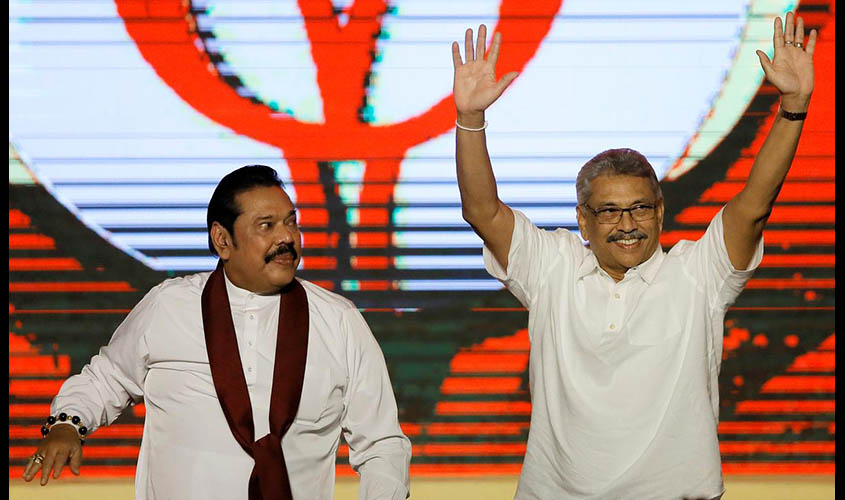Sources close to Sri Lanka’s power centre say that the way the political scenario is evolving in their country should make India wary.
New Delhi/Colombo: The seemingly serene, emerald green island of Sri Lanka on the Indian Ocean is worried that it is headed for turbulent times. Trouble reared its brutal head on Easter Sunday earlier this year, when bomb attacks by home-grown ISIS terrorists ripped through churches and luxury hotels in Colombo, killing over 250 people. Add to this rise of Islamic fundamentalism, the deepening Chinese footprints in what is essentially India’s backyard and Sri Lanka is worried that it is stuck between a rock and a hard place—even as the two behemoths fight a geopolitical war to influence politics in this strategically placed island nation. If sources close to Sri Lanka’s power centre have to be believed, the way the political scenario is evolving in their country should make India wary. In fact, observers in Colombo are watching India’s reaction to the unfolding situation keenly, for it may have major ramifications for Sri Lanka in the future.
At the centre of it all is the return of the Rajapaksa brothers at the helm of the country. Mahinda Rajapaksa’s younger brother, Gotabaya, won the Presidential election
Adding to Gotabaya’s popularity are certain populist measures he has taken, especially sweeping tax cuts. The nation’s value added tax has been reduced to 8% from 15%, while seven taxes have been abolished, including a 2% nation building tax that businesses were paying. This, however, has led to fears that the Sri Lankan economy, small in size and deep in debt, may go belly up. And it is here that China, already solidly entrenched in Sri Lanka, walks in, further tightening its control over the tiny nation. While observers wonder what India’s response to this will be, they are certain that India will not sit quiet and that there is a possibility that the Tamil dominated North “will become” restive once again, with Indian “encouragement”.
The observers add that India is in a Catch 22 situation when it comes to Sri Lanka. Notwithstanding the noises of neutrality being made in the initial days, the Rajapaksas are firmly aligned with China. The earlier Prime Minister, Ranil Wickremesinghe of the United National Party, was firmly against China and thus, by default, “pro India”. But he is built in the “left-liberal” mould, and it was during Wickremesinghe’s time that Islamic radicalism reared its ugly head and got space to thrive, thus putting not just Sri Lanka in danger but also the southern part of India, specifically Tamil Nadu. It was during Wickremesinghe’s tenure as PM that the deadly Easter bombings took place and the Buddhist majority nation reacted by voting overwhelmingly for Gotabaya, as he was seen as someone who could be tough on terror.
Some guessing game is also going on about whether, or not, in case of a rift between the two brothers, Gotabaya will ensure that he gets support from his “party”—the army. Such a situation suits China immensely, say observers.
Sri Lankans are also worried that the Tamil dominated Northern Province could become a major headache in the near future, to the point of seceding from the rest of the country, with “Indian help”. Gotabaya got only 12.27% votes from this Tamil dominated region, while 82.2% votes went to the current Opposition leader, Sajith Premadasa. The worry is that this region may exercise the right to self-determination as laid down by the UN and merge with another country—read India—after expressing their will to do so. In other words, India may “annex” the Northern Province and make it a part of “Greater Tamil Nadu” to “checkmate China”. In this context, the construction of a new international airport at Jaffna, the capital of Northern Province, and inaugurated by the earlier President, Maithripala Sirisena in October 2019—direct flights have started between Chennai and Jaffna—is being looked at with some trepidation by certain quarters in Colombo.
Although sources in Delhi say that India has no such plans whatsoever and is committed to the integrity of Sri Lanka, observers in Colombo are worried that hard times are hovering on the horizon for their country.

